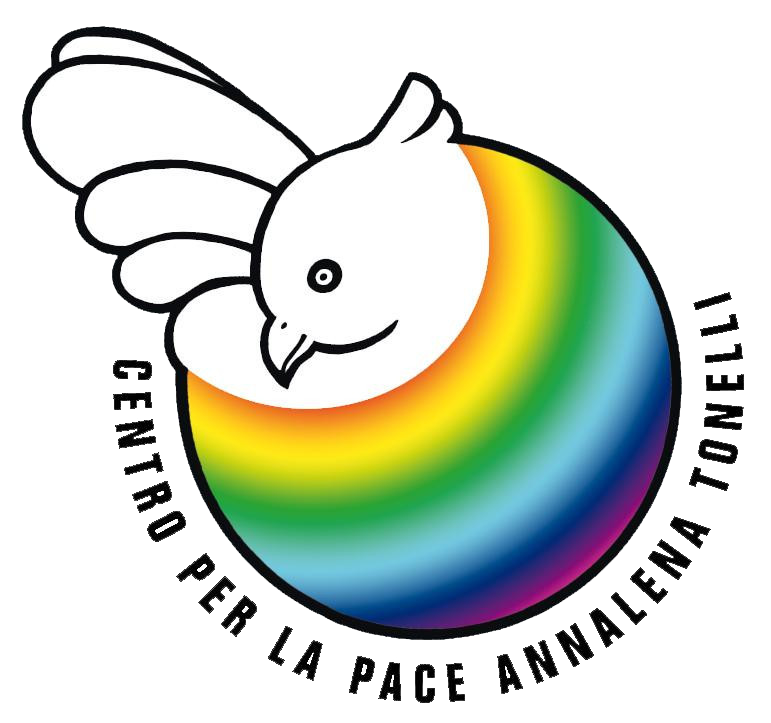ABSTRACT in italiano e in inglese
di Isabella Faith Gutierrez –
Le relazioni tra la Corte Costituzionale della Federazione Russa (CCRF) e la Corte Europea dei Diritti dell’Uomo (CEDU) si sono interrotte dopo l’invasione russa dell’Ucraina nel febbraio 2022. Questa rottura rappresenta un grave arretramento per i diritti umani, poiché priva le vittime in Russia della possibilità di cercare rimedi presso la CEDU.
Dall’adesione della Russia alla Convenzione Europea dei Diritti dell’Uomo (CEDU) nel 1998, vi è stata una consolidazione contrastante delle protezioni dei diritti umani nella sua costituzione. Nel solo 2019, la CEDU ha ricevuto 9.238 richieste riguardanti violazioni dei diritti umani in Russia. Di queste, 8.793 sono state dichiarate inammissibili o respinte. Delle rimanenti 445 richieste, sono state emesse 198 sentenze, con 186 di esse che hanno riscontrato almeno una violazione della CEDU da parte della Russia.
Sebbene la CCRF abbia rispettato molte delle sentenze della CEDU, ha fondamentalmente contestato l’autorità della corte. Attraverso un’analisi delle relazioni antagonistiche tra la CCRF e la CEDU, emerge una divergenza nelle interpretazioni della Convenzione tra le sfere europee e russe. Casi come Konstantin Markin v. Russia (2006) sulla discriminazione di genere, Yukos v. Russia (2014) sul diritto a un processo equo, e Anchugov e Gladkov v. Russia (2013) sui diritti di voto nelle elezioni libere, evidenziano il disprezzo della Russia per i diritti umani, non riuscendo ad allineare la sua costituzione alle decisioni di Strasburgo.
La Convenzione di Vienna sul Diritto dei Trattati stabilisce, all’articolo 27, che la legge interna, compresa la legge costituzionale, non può essere utilizzata per giustificare il mancato adempimento degli obblighi derivanti dai trattati. Lo scopo principale della CEDU è quello di proteggere i diritti umani e le libertà fondamentali, sanciti attraverso le sentenze emesse dalla CEDU. Nonostante le obiezioni della CCRF, la CEDU non richiede una “rinuncia prima facie alla sovranità”, poiché la ratifica di un trattato è di per sé un esercizio di sovranità. Con l’adesione alla CEDU nel 1998, la Russia ha accettato la giurisdizione della CEDU, come hanno fatto tutti gli altri membri della Convenzione. È responsabilità degli stati membri rispettare la Convenzione integrando le sentenze della CEDU nei loro sistemi giuridici interni.
Pertanto, era dovere della Russia, come per tutti i firmatari della CEDU, armonizzare la sua costituzione con la Convenzione per proteggere e garantire i diritti umani.
Nel marzo 2022, un comunicato stampa della CEDU ha confermato che l’appartenenza della Russia al Consiglio d’Europa era ufficialmente terminata, a seguito della decisione del Comitato dei Ministri. Questo ha significato che la CCRF non era più vincolata alla CEDU, e la Convenzione per la protezione dei diritti umani e delle libertà fondamentali non si sarebbe più applicata alla Russia. Al momento dell’espulsione della Russia, circa 17.450 richieste contro la Russia erano ancora pendenti davanti alla CEDU.
Nonostante gli sforzi costanti durante i 24 anni di relazione per allineare la CCRF alla CEDU, è cruciale affrontare la situazione con realismo. Come ha affermato l’autore Mälksoo, “È necessario il realismo quando si proiettano gli effetti di socializzazione dei trattati internazionali sui diritti umani… su paesi in cui una storia e un’ideologia anti-liberale portano i governi a mettere in discussione le fondamenta della CEDU, anche mentre sono sotto la sua giurisdizione.” Considerando il coinvolgimento della Russia nella guerra in Ucraina, ci si può aspettare che tali azioni aggressive si correlino a violazioni dei diritti costituzionali dei suoi stessi cittadini. Con la Federazione Russa non più parte della CEDU, queste violazioni potrebbero ora passare inosservate, permettendo al governo di attuare misure repressive senza affrontare conseguenze legali internazionali. Questo distacco dalla CEDU incoraggia ulteriormente pratiche autoritarie, riducendo la responsabilità esterna per azioni che violano le libertà civili e i diritti umani.
War and Rights in Isolation: Human Rights Violations Before and After Russia’s Withdrawal from the ECHR
Relations between the Constitutional Court of the Russian Federation (CCRF) and the European Court of Human Rights (ECtHR) ended after Russia’s invasion of Ukraine in February 2022. This severance is a serious setback for human rights, as it deprives victims in Russia of the opportunity to seek redress through the ECtHR.
Since Russia’s accession to the European Convention on Human Rights (ECHR) in 1998, there has been a conflicting consolidation of human rights protections in its constitution. In 2019 alone, the ECtHR received 9,238 applications regarding human rights violations in Russia. Of these, 8,793 were deemed inadmissible or were struck out. Of the remaining 445 applications, 198 judgments were issued, with 186 of them finding at least one violation of the ECHR by Russia.
While the CCRF complied with many ECtHR judgments, it fundamentally challenged the court’s authority. Through an analysis of antagonistic relations between the CCRF and ECtHR, a divergence in how the ECHR is interpreted within European and Russian spheres becomes apparent. Cases such as Konstantin Markin v. Russia (2006) on gender discrimination, Yukos
v. Russia (2014) on the right to a fair trial, and Anchugov and Gladkov v. Russia (2013) on voting rights in free elections highlight Russia’s disregard for human rights by failing to align its constitution with Strasbourg’s rulings.
The Vienna Convention on the Law of Treaties stipulates in Article 27 that domestic law, including constitutional law, cannot be used to justify failure to fulfill treaty obligations. The primary goal of the ECHR is to protect human rights and freedoms, upheld through judgments issued by the ECtHR. Despite the CCRF’s objections, the ECtHR does not require a “prima facie renunciation of sovereignty,” as treaty ratification itself is an exercise of sovereign authority.
Upon joining the ECHR in 1998, Russia accepted the jurisdiction of the ECtHR, just as all other parties to the Convention have. It is the responsibility of member states to uphold the Convention by integrating ECtHR judgments into their domestic legal frameworks.
Thus, it was Russia’s duty, as with all ECHR signatories, to bring its constitution into alignment with the Convention in order to protect and uphold human rights.
In March 2022, a press release from the ECtHR confirmed that Russia’s membership in the Council of Europe had officially ended, following the decision of the Committee of Ministers. This meant that the CCRF was no longer bound by the ECtHR, and the Convention for the Protection of Human Rights and Fundamental Freedoms would no longer apply to Russia. At the time of Russia’s expulsion, around 17,450 applications against Russia were still pending before the ECtHR.
Despite sustained efforts over their 24-year relationship to align the CCRF with the ECtHR, it is crucial to approach this situation with realism. As author Mälksoo stated, “Realism is required when projecting the socialization effects of international human rights treaties… on countries where an anti-liberal history and ideology lead governments to question the foundations of the ECHR, even while under its jurisdiction.” Given the country’s involvement in the war in Ukraine, it is to be expected that such aggressive actions would correlate with violations of the constitutional rights of its own citizens. With the Russian Federation no longer part of the European Court of Human Rights (ECHR), these violations may now go unchecked, allowing the government to implement repressive measures without facing international legal repercussions. This detachment from the ECHR further emboldens authoritarian practices, as there is less external accountability for actions that infringe on civil liberties and human rights.
—-
REFERENCES
Constitution of the Russian Federation App no 992/2020 (CoE, 4 February 2021) Convention for the Protection of Human Rights and Fundamental Freedoms (European
Convention on Human Rights, as amended) (ECHR).
Vienna Convention on the Law of Treaties (VCLT 1969).
Anchogov and Gladkov v. Russia App no 11157/04 and 15162/05 (ECtHR, 9 December 2013).
Konstantin Markin v. Russia App no 30078/06 (ECtHR, 22 March 2012).
Oao Neftyanaya Komaniya Yukos v. Russia App no 14902/04 (ECtHR, 31 July 2014).
Hirst v. The United Kingdom App no 74025/01 (ECtHR, 6 October 2005).
Görgülü v. Germany App no 74969/01 (ECtHR, 26 May 2004).
European Court of Human Rights, ‘The Russian Federation ceases to be a Party to the European Convention on Human Rights’ [2022] Registrar of the Court
<https://www.google.com/url?sa=i&rct=j&q=&esrc=s&source=web&cd=&cad=rja& uact=8&ved=0CAQQw7AJahcKEwigwIm1mbr8AhUAAAAAHQAAAAAQAw&url=http s%3A%2F%2Fhudoc.echr.coe.int%2Fapp%2Fconversion%2Fpdf%2F%3Flibrary% 3DECHR%26id%3D003-7435446-
10180882%26filename%3DThe%2520Russian%2520Federation%2520ceases%25 20to%2520be%2520a%2520Party%2520to%2520the%2520European%2520Con vention%2520on%2520Human%2520Rights.pdf&psig=AOvVaw38V1i9W7e1b1wu UMS6RkH3&ust=1673343759156430> accessed 8 January 2023
OHCHR, ‘What are Human Rights?’ (United Nations) <https://www.ohchr.org/en/what-are- human-rights> accessed 8 January 2023.
Bill Bowring, ‘Russia and the European Convention (OR COURT) of Human Rights: The End?’
Quebec Journal of International Law <https://www.sqdi.org/wp- content/uploads/201-218-HSCEDH_12_Bowring_intégré.pdf> accessed 27
December 2022.
Jannika Jahn, ‘The Council of Europe Excludes Russia: A Setback for Human Rights’ (European Journal of International Law, 23 March 2022)
<https://www.ejiltalk.org/the-council-of-europe-excludes-russia-a-setback-for- human-rights/> accessed 8 January 2023.
Jeffrey Kahn, ‘The Relationship between the European Court of Human Rights and the
Constitutional Court of the Russian Federation: Conflicting Conceptions of Sovereignty in Strasbourg and St Petersburg’ [2019] 30(3) European Journal of International Law
<https://academic.oup.com/ejil/article/30/3/933/5673314> accessed 27
December 2022.
William E. Pomeranz, ‘Uneasy Partners: Russia and the European Court of Human Rights’ [2012] 19 (3) Human Rights Brief
<https://digitalcommons.wcl.american.edu/hrbrief/vol19/iss3/3/> accessed 27
December 2022.
Pietro Pustorino, ‘Russian Constitutional Court and the Execution “à la carte” of ECtHR
Judgements’ [2016] Questions of International Law <http://www.qil- qdi.org/russian-constitutional-court-execution-la-carte-ecthr- judgments/> accessed 27 December 2022.
Peter Roudik, ‘Russian Federation: Constitutional Court Allows Country to Ignore ECHR
Rulings’ [2016] Library of Congress <https://www.loc.gov/item/global-legal- monitor/2016-05-18/russian-federation-constitutional-court-allows-country-to- ignore-echr-rulings/> accessed 27 December 2022.
Mälksoo, Lauri. “Introduction: Russia, Strasbourg, and the paradox of a human rights
backlash.” (2017).
_ _ _ _ _ _

